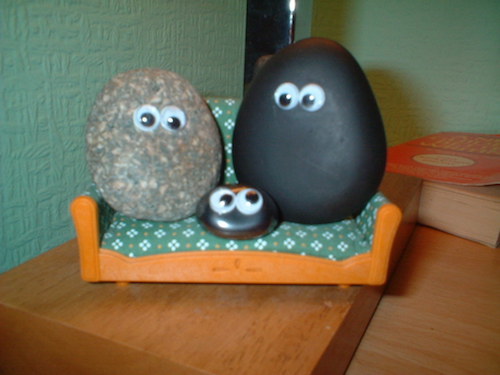Discovery Institute's Blog, page 111
December 4, 2015
What Can We Hope to Learn About Animal Minds?

Editor's note: Evolution News is pleased to inaugurate a new series, "Animal Minds," by Denyse O'Leary. You will find this and future installments conveniently gathered here.
Human consciousness is difficult to define and "arguably the central issue in current theorizing about the mind," even though we experience it all our waking hours. If we can't even define our own consciousness, can we say whether a different type of life form has consciousness or a mind?
Some current philosophers have...
December 3, 2015
This Christmas, Intelligently Design Your Gift List with Resources from the Center for Science & Culture!

Editor's note: We are delighted to welcome a new contributor, Rachel Aldrich, who besides being a valued member of the Evolution News editorial staff, serves as Assistant to the Associate Director of the CSC and Special Projects Coordinator.
With the Christmas season squarely upon us, it's time to start compiling gift lists. In our current culture, it's more important than ever to understand how modern scientific advances interact with faith. As you're looking for Christmas gifts this year,...
Smithsonian's Traveling Human Origins Exhibit Overstates the Case for Human Evolution

On Tuesday I was at the Milpitas Public Library in Milpitas, California, to hear a presentation by paleoanthropologist Rick Potts. Dr. Potts was on hand because a traveling exhibit he curated is on view at the library. It's sort of a portable version of the Smithsonian's Hall of Human Origins. Obviously this traveling exhibit is much smaller than the permanent one at the National Museum of Natural History in Washington, D.C. (I wrote about that here.) Yet it manages to retain many of the sam...
What Does "Life's Conservation Law" Actually Say?
[image error]
In a series of posts, I am examining criticisms from Joe Felsenstein (University of Washington geneticist) and Tom English (Oklahoma City computer scientist) in response to two arguments for intelligent design: specified complexity and conservation of information. This is the second post in the series. Find the first here.
In an earlier article at Evolution News ("These Critics of Intelligent Design Agree with Us More Than They Seem to Realize"), I emphasized that while the theorems of conse...
December 2, 2015
Brains Are a Mosaic of "Male" and "Female"? It's Called Being Human

A study published on Monday has caused a stir. The Washington Post describes the work:
Lots of folks -- well-intentioned and otherwise -- like to point out the supposed differences between male and female brains. But it's time to throw away the brain gender binary, according to a study published Monday in the Proceedings of the National Academy of Sciences. Brains can't really fit into the categories of "male" or "female" -- their distinguishing features actually vary across a spectrum.
It's...
Specified Complexity -- Like D��j�� Vu All Over Again

Writing at the blogs Panda's Thumb and The Skeptical Zone, Joe Felsenstein (University of Washington geneticist) and Tom English (Oklahoma City computer scientist) have lately published three posts criticizing two arguments for intelligent design: specified complexity and conservation of information. However, their objections are based on misrepresentations of these arguments.
I have previously attempted to answer these misrepresentations, but have either been ignored or accused of surrepti...
Rubik's Cube Is a Hand-Sized Illustration of Intelligent Design
For those who have not made it a favorite pastime, solving a Rubik's Cube just adds unneeded stress to life. It's frustrating to twist and turn those colors, getting some to match but finding out your last move un-matched colors you had previously matched. Then to find some kid on TV doing it in seconds is enough to send you outside screaming. The world record is now 4.904 seconds by Lucas Etter, a teenager in Maryland, who set the record on November 24.
The cube has over 43 quintillion pos...
December 1, 2015
Time Machine: An Early Argument for Intelligent Design
Author's note : To paraphrase Barbara Mandrell, I was ID when ID wasn't cool. What, intelligent design still isn't cool, you say? Oh...well, compared to 1985 it is.
I offer for your interest the Postscript to my 1985 Springer book, Analysis of a Finite Element Method: PDE/PROTRAN . This Postscript draws an analogy between the evolution of the software described in the book (now called PDE2D) and the evolution of life, and it is primarily about irreducible complexity, although Michael Behe woul...
Transhumanists Are Back with Another Immortality Scheme

Ah, the transhumanists. They mostly don't believe in anything beyond the nakedly material, but like those who are theistically minded, they hope to live forever. So rather than prayer or repentance, they turn to technology.
A company called Humai Tech wants to exploit that potentially huge market by seeking to create technology to resurrect you -- in robot form -- after death. Here's the plan. First, create a realistic artificial body. From the story in The Mirror:
Creating an imprint of peo...
Do Perceptions Happen in Your Brain?

I have pointed out that many ordinary concepts in materialist neuroscience don't hold up to scrutiny. You don't store memories in your brain -- you can't store memories in your brain. Your mind isn't a computer -- in a very real sense it is anything but a computer. Your intellect and will are immaterial powers -- they cannot be instantiated in matter at all.
So here's a question: Are there any other conventional materialist interpretations of neuroscience that are logically incoherent? Cons...
Discovery Institute's Blog
- Discovery Institute's profile
- 15 followers





